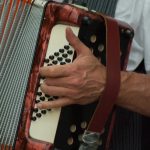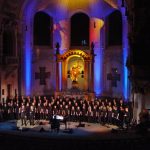4 “Show me, O LORD, my life’s end and the number of my days; let me know how fleeting is my life. 5 You have made my days a mere handbreadth; the span of my years is as nothing before you. Each man’s life is but a breath. Selah 6 Man is a mere phantom as he goes to and fro: He bustles about, but only in vain; he heaps up wealth, not knowing who will get it. 7 “But now, Lord, what do I look for? My hope is in you. 8 Save me from all my transgressions; do not make me the scorn of fools. – – Psalms 39:4-8
David here questions the purpose of life – just as his son Solomon does years later.
David states, “Man is a mere phantom as he goes to and fro.” while Solomon puts it a little bit more bluntly when he says, “Life is meaningless.” But they are both in the same situation , wondering what is the purpose of their lives. Do we really matter in the scope of eternity? With our lives being so miniscule in relation to eternity – a drop in the ocean of time, then what is really important?
I love what David asks of God in verse 4:
“Show me, O LORD, my life’s end and the number of my days; let me know how fleeting is my life.”
Our lives on earth are limited . From the moment of our birth we are like an hourglass and the grains of sand are quickly passing with each moment. Yet we still get caught up in the little meaningless things and forget what is really important.
David realised this and knew that if he could really grasp how brief his time on earth really was, then he would start to find out what was really important in his life.
Have you ever had a near death experience or know someone who has?
Notice how almost instantly their priorities change? Thigs that were important are tossed to the side as they chase the dreams they were to afraid to live. They always seem to ‘get their lives in check.’
David mentions the meaningless of wearch in verse 6, just as Solomon does in Ecclesiastes 5. He also casts aside these as meaningless as well:
- Wisdom 16 I thought to myself, “Look, I have grown and increased in wisdom more than anyone who has ruled over Jerusalem before me; I have experienced much of wisdom and knowledge.” 17 Then I applied myself to the understanding of wisdom, and also of madness and folly, but I learned that this, too, is a chasing after the wind. – – Ecclesiastes 1:16-17
- Pleasures 10 I denied myself nothing my eyes desired; I refused my heart no pleasure. My heart took delight in all my work, and this was the reward for all my labor. 11 Yet when I surveyed all that my hands had done and what I had toiled to achieve, everything was meaningless, a chasing after the wind; nothing was gained under the sun. – – Ecclesiastes 2:10-11
- Toil (Work)
17 So I hated life, because the work that is done under the sun was grievous to me. All of it is meaningless, a chasing after the wind. 18 I hated all the things I had toiled for under the sun, because I must leave them to the one who comes after me. 19 And who knows whether he will be a wise man or a fool? Yet he will have control over all the work into which I have poured my effort and skill under the sun. This too is meaningless. – – Ecclesiastes 2:17-19
Infact, right at the start of Ecclesiastes, Solomon makes an extremely blod statement,
“Meaningless! Meaningless! ” Says the teacher. “Utterly meaningless! Everything is meaningless!”
Now I don’t for one second believe that Solomon thinks that everything in the world is meaningless. I beleive that he is trying to convey the point that everything we think is important , really isn’t.
So What Is Important Then?
- Know Our God
After seeing how minute his life was, David started to realise what was really important when he says in vers 7, “But now, Lord, what do I look for? My hope is in you.”He realised that the most important thing in life is to know and rely on God. Nothing else is more important!
- Follow Him
Solomon draws a similar conclusion about the important things in life, when he puts forth the following passage at the end of his book.
The good news is that we don’t have to!13 Now all has been heard; here is the conclusion of the matter: Fear God and keep his commandments, for this is the whole duty of man. 14 For God will bring every deed into judgment, including every hidden thing, whether it is good or evil.
When we know our God and understand what He has really done for us, we have no other choice but to offer our lives to Him – to follow Him.
David takes a more personal approach when he cries out ‘Save me from all my trangressions.’ He realised that He would never be good enough to follow God in his own power.
The good news is that we don’t have too!



